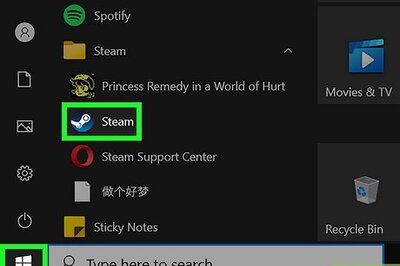
views
Tripoli: NATO said on Saturday it mistakenly struck a column of Libyan rebel vehicles in an airstrike near an eastern oil town two days earlier and expressed regret for any casualties that might have resulted.
The alliance has accidentally hit rebel forces before in its air campaign to protect civilians in the civil war between Muammar Gaddafi's military and the fighters trying to end his more than four decades in power. The rebels have also complained that NATO's strikes have not helped them gain decisive momentum against the Libyan leader's better trained and equipped military, which still has firm control over most of western Libya. The rebels control much of the east.
The alliance statement gave no figures on casualties from Thursday's airstrike, but said it regretted "any possible loss of life or injuries caused by this unfortunate incident."
NATO meanwhile continued to strike targets in the capital Tripoli into the early hours of Sunday. The thump of an explosion could be felt in the center of the city about 1 am It wasn't clear what had been hit or if there were casualties.
In the accidental strike on rebel forces, NATO said its forces spotted a column of military vehicles near the frequent flashpoint town of Brega where forces loyal to Gaddafi had recently been operating and hit them because they believed they posed a threat to civilians.
"NATO can now confirm that the vehicles hit were part of an opposition patrol," the statement said.
International military forces have had some trouble in hitting government troops because of their proximity to civilians. Gaddafi's troops have also used civilian vehicles, making them difficult to distinguish from rebel forces.
A doctor in the nearby city of Ajdabiya said the bodies of four rebel fighters were brought to his hospital around the time of Thursday's strike, but it was not possible to confirm whether they were killed in the bombardment.
A rebel military spokesman, Abdel-Rahman Abu-Sin, said Saturday that they appreciated NATO's efforts and understood the difficulty in differentiating between the two sides along shifting front lines.
Thursday's airstrike was similar to one on April 7 in which NATO hit a convoy of rebel tanks, killing at least five fighters, as the rebels were closing in on Brega. NATO officials said at the time they did not know the rebels had any tanks, a statement that raised eyebrows as footage of the fighters with tanks had been on YouTube for weeks.
A week earlier, NATO mistakenly targeted rebels as they tried to retake Brega. The rebels said 13 of their fighters were killed in that attack.
Earlier Saturday, NATO accused Gaddafi's forces of using mosques and children's parks as shields for his military operations and said the Libyan leader is "brutally attacking" his people.
At least two NATO airstrikes shook Tripoli during a daylight raid on Saturday, hours after Gaddafi lashed out against airstrikes in a speech on Friday night, insisting "NATO will be defeated."
In Brussels on Saturday, NATO spokeswoman Oana Lungescu dismissed Gaddafi's speech as "outrageous."
The alliance, which has a mandate to protect civilians, has been ramping up the pressure on Gaddafi's regime as a four-month uprising devolved into a civil war. Though most airstrikes happen under cover of darkness, daytime raids have grown more frequent.
Libya's Health Ministry released new casualty figures that put the number of civilians purportedly killed in NATO airstrikes through June 7 at 856. The figure could not be independently verified, and previous government-announced tolls from individual strikes have proven to be exaggerated.
Lungescu rejected the casualty figures.
"We are saving countless lives every day across the country," she said. "We are conducting operations with utmost care and precision to avoid civilian casualties. Civilian casualties figures mentioned by the Libyan regime are pure propaganda."
She also accused Gaddafi and his regime of "systematically and brutally attacking the Libyan people," saying government forces "have been shelling cities, mining ports and using mosques and children's parks as shields."
Lungescu's comments also countered allegations from Libyan Prime Minister al-Baghdadi al-Mahmoudi, who accused NATO on Friday of a "new level of aggression" and said the military alliance has intentionally targeted civilian buildings in recent days, including a hotel and a university.
Defense officials in London on Saturday gave details of British airstrikes over the previous two days, indicating an upswing in fighting along the Tunisian border in the far west.
Maj. Gen. Nick Pope, chief of the Defense Staff's Communications Office, said British fighter jets destroyed three armed Libyan trucks and badly damaged a fourth in the mountainous region around the rebel-held city of Nalut.
Abdel Salam Othman Abou el-Qassam, speaking by phone from the operations room of rebel western mountain military council, said Gaddafi forces tried to advance Friday on Nalut. They cut electricity and water supplies, after pounding the city with mortar fire for several days.
The rebels blocked the advance, he said, in heavy fighting with hundreds of pro-Gaddafi fighters. Eight rebel fighters died.
A day earlier, Pope said, jets used Paveway guided bombs to destroy a convoy of four armed trucks 60 miles (100 kilometers) south of Misrata. Rebels have been fighting for weeks to break out of the port city toward Tripoli, 125 miles (200 kilometers) to the west.
Officials took journalists Saturday to visit a university building that the government claims was hit by a NATO airstrike.
Students and faculty told reporters that an explosion that tore a hole in a three-story building housing classrooms and offices happened sometime midday Friday, though accounts differed on the timing.
One English-speaking student interviewed by The Associated Press was being told what to say in Arabic by a plainclothes government official standing nearby.
No one was reported injured or killed. The campus sits a few hundred yards (meters) from what appears to be a military installation. The building that was damaged was an aging concrete structure next to what students said were new university buildings under construction.
A coalition including France, Britain and the United States launched the first strikes against Gaddafi's forces under a United Nations resolution to protect civilians on March 19. NATO, which is joined by a number of Arab allies, assumed control of the air campaign over Libya on March 31.
Senior delegates from the Arab League, the European Union and the African Union along with envoys from the UN and the Organization of the Islamic Conference met in Cairo to review the developments in Libya.
Arab League chief Amr Moussa said the NATO mandate is not about bringing down Gaddafi's regime and a political solution is urgently needed.
"The situation has gone beyond what was expected. It is only natural that we speed up the search for a political solution and achieving a cease-fire," he said.




















Comments
0 comment